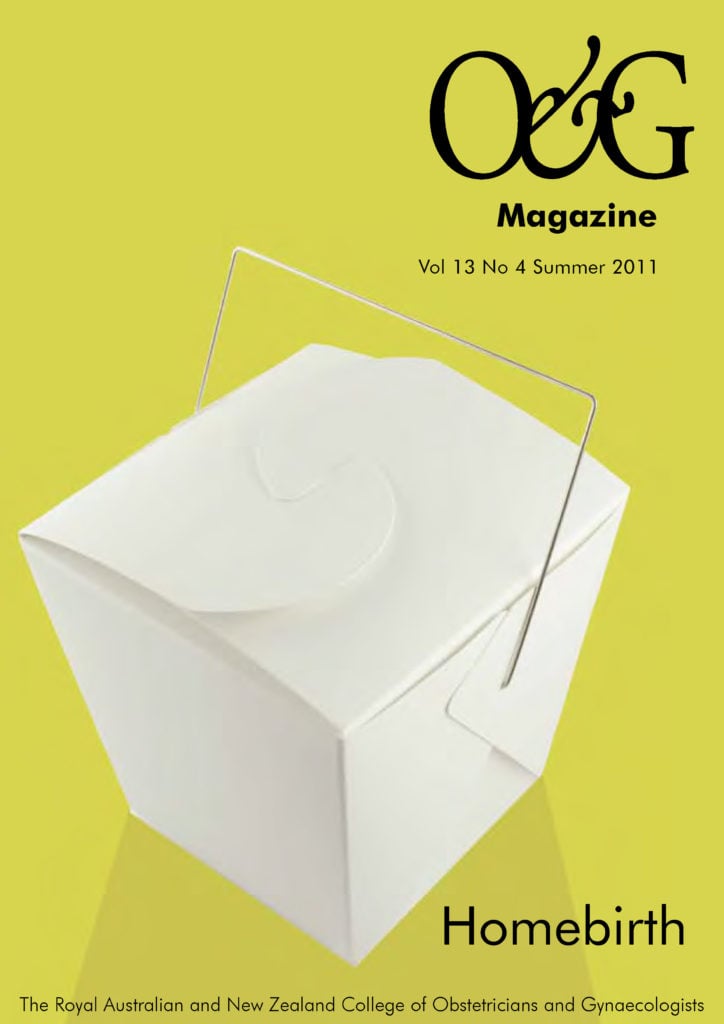The medico-legal issues of a homebirth are the same for any other pregnancy: rights for patients and responsibilities for doctors, with the central need for good communication and documentation, all based on the ethical duty of care of the medical profession.
Details of homebirth in New Zealand are hard to find because, unlike in Australia, the place of birth is not a requirement for registration and the issue of a birth certificate. The rate of homebirth in New Zealand is thought to be somewhere between two and five per cent of all births which, probably, has not altered much since 1990, when legislation was passed (the Nurses’ Amendment Act 1990) with the intention of increasing the number of homebirths through midwifery autonomy. Previously, there was a legal requirement for a doctor to be in attendance at all births. The legislative change was part of a campaign predicated on choice for women and a diminished role for medical practitioners.
In June 2009, the latest mortality data that is available in New Zealand, 11 stillbirths and neonatal deaths were reported for women who intended to have a homebirth, about two per cent perinatal mortality for that year. Seven of the 11 women were transferred to hospitals for the actual birth, which shows astute selection processes were at work.
Like antenatal care, the provision of hospital beds for births is a relatively recent development for the human race and, in countries like ours, it came with the creation of a social welfare system 60 years ago. The basis for these changes was improving safety for women and babies and they have been spectacularly successful, in combination with better general health for most women, the specialisation of the people providing care and improved facilities.
Women, in legislation, have the right to choose who provides care and where they have their babies although, in real life, the choice is limited for many women. The Homebirth Association can claim, rightly, that homebirth is safe because if women are within a health service there will be a process of selection, the assessment of risk and the availability of specialist services. Some women will find themselves being referred for a specialist opinion, in accordance with various guidelines for referral that include the same sort of indications that led to the provision of hospital beds for maternity in the last century. In my experience, women who are keen to have a homebirth have a positive attitude in the first place. Sometimes there may be a background of antipathy towards the medical profession and our propensity to intervene in what is perceived to be a natural process. It is unwelcome, although essential in my opinion, to recognise that Nature can be cruel: she is not a loving, benign creature at all times. Roses have thorns and, even with the best intention, some of the women who seek a homebirth will be unsuccessful. It is our duty then to make the way to birth as fulfilling as possible.
It starts with listening carefully to any woman who is referred to an obstetric unit, being non-judgemental, regardless of how crazy the notion may seem to want to give birth at home and, if the referral is just a consultation rather than a handover of care, my usual practice s to say yes, why not, and then the conversation can be a friendly, constructive one. It is rare for women not to agree to a compromise – to accept extra monitoring, for example – because they want a healthy mother and baby just as much as we do. Advice should be given impartially, preferably written at the time of the conversation with a copy for the woman, and certainly documented carefully in any clinical record that is required.
Doctors have the right, except in an emergency, to refuse care to a patient should the situation become impossible. A doctor may withdraw from or decline to provide care as long as an alternative source of care is available and the woman is aware of how to secure this care and notice given. However, an emergency with transfer from home or a primary care birthing place is a frequent occurrence, so doctors are obliged to provide the best care that they can in the circumstances and the word ‘reasonable’ appears in the Code of Rights for patients.
There may be times when a woman refuses an intervention that is recommended and sometimes it is the father of the child or other members of the family who refuse an intervention. It is important, then, to have a signed statement similar to the one provided by Jehovah Witnesses (who are prepared to absolve medical staff from any responsibility for adverse outcomes that occur as a result of the refusal of a blood transfusion). Hospital managers should be involved in such situations. In our jurisdictions, the fetus has no legal rights until born, but a Court may recognise potential rights for an unborn child, which is a nice legal argument.
Patients have a responsibility to provide the information we require to provide good care and doctors have the right to practise to the best of our ability, which gives us some influence over the conduct of the birth, if necessary down to the detail of the use of oxytocin during third-stage labour and the behaviour of onlookers in a delivery room. Obviously, it is best to avoid a confrontation, to enlist the help of colleagues or seniors should be there be a disagreement and if withdrawal from care seems to be the only solution, there is an ethical duty to help arrange alternative care at the same level of expertise.
One of the prime principles of professionalism is to put the needs of the patient before our own and the legal test is that of a reasonable woman, meaning the focus is on the person who is the patient rather than the reasonable doctor or the man on a suburban bus. Autonomy is always important in the health service, perhaps even more so in the maternity services because only rarely are women so ill that they are unable to make decisions for themselves, and it is our duty as doctors to show respect for their wishes, while recognising the enormous spectrum of human eccentricities.
Modern obstetricians know a great deal more than previous generations, but we still do not have supernatural powers and we do not need to control every event. For women who seek a homebirth, our role is to listen, give advice constructively and do our best to help them to achieve their goals because homebirth can be a beautiful and safe experience.
A personal disclaimer: I was born at home!






Leave a Reply